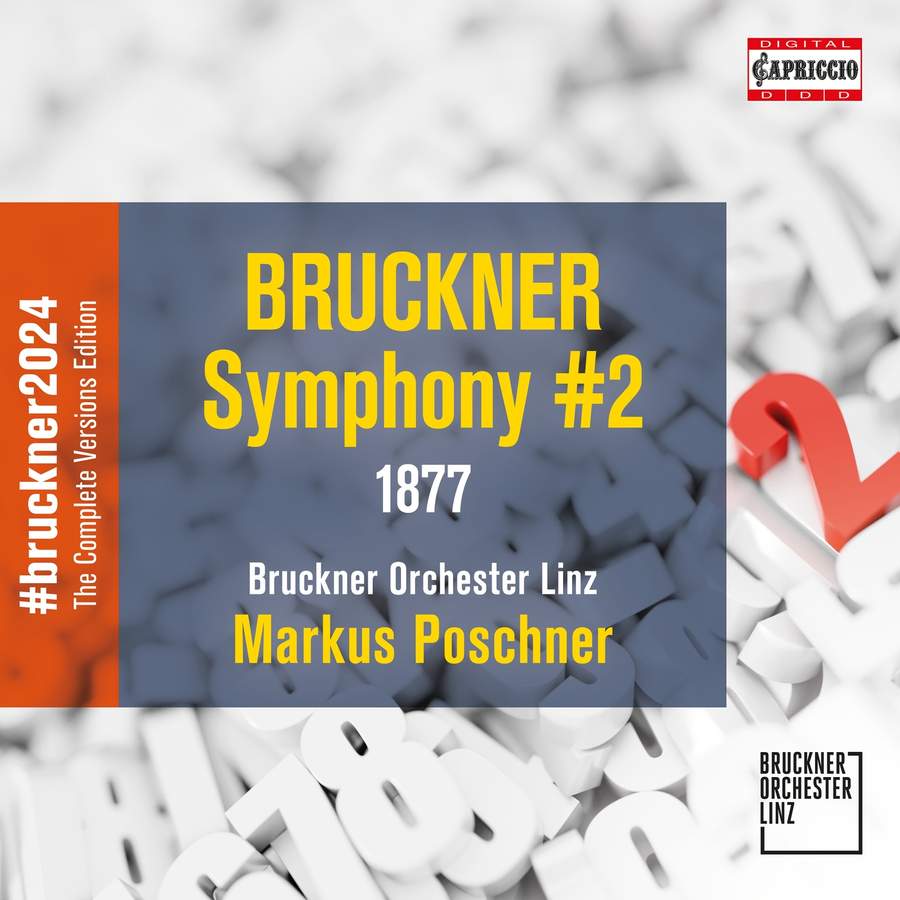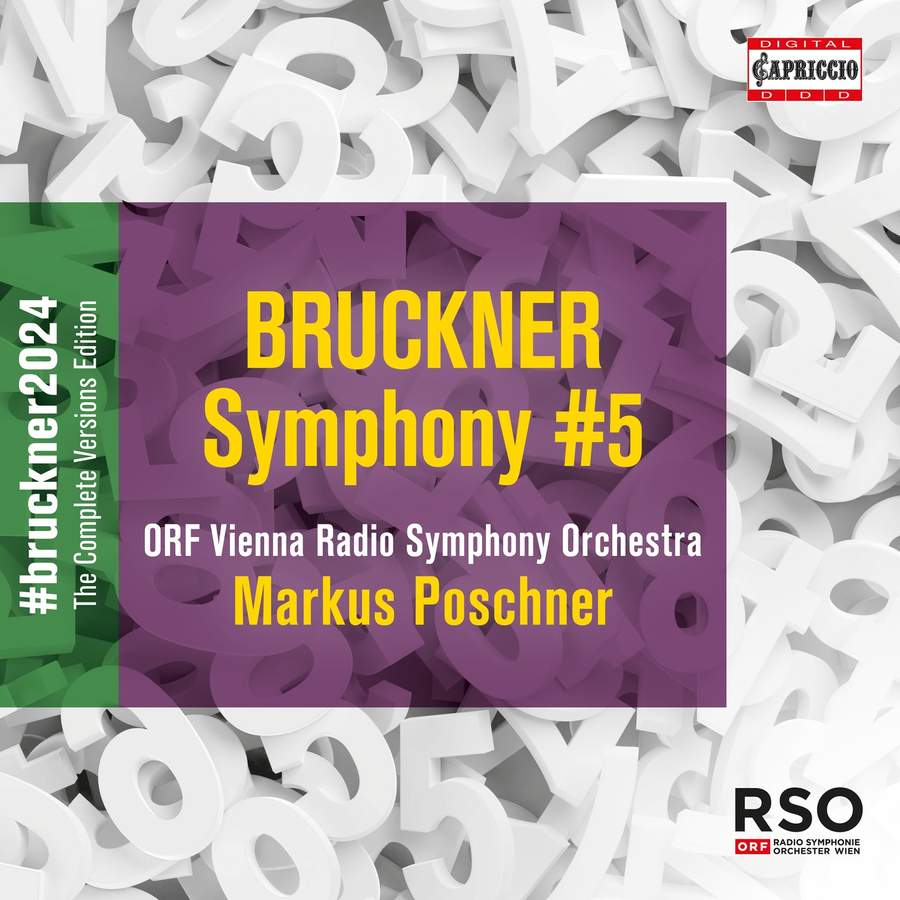BRUCKNER Symphonies Nos 2 & 5 (Poschner)
View record and artist detailsRecord and Artist Details
Genre:
Orchestral
Label: Capriccio
Magazine Review Date: 01/2024
Media Format: CD or Download
Media Runtime: 52
Mastering:
DDD
Catalogue Number: C8089

Tracks:
| Composition | Artist Credit |
|---|---|
| Symphony No. 2 |
Anton Bruckner, Composer
Linz Bruckner Orchestra Markus Poschner, Conductor |
Genre:
Orchestral
Label: Capriccio
Magazine Review Date: 01/2024
Media Format: CD or Download
Media Runtime: 71
Mastering:
DDD
Catalogue Number: C8090

Tracks:
| Composition | Artist Credit |
|---|---|
| Symphony No. 5 |
Anton Bruckner, Composer
Markus Poschner, Conductor Vienna Radio Symphony Orchestra |
Author: Christian Hoskins
Markus Poschner’s recording of the 1877 version of the Second Symphony features a new edition by the Bruckner scholar Paul Hawkshaw. The Second has long been the most problematic of the symphonies in terms of its published editions, the Haas and Nowak versions in particular being hybrid versions of Bruckner’s original score of 1872 and his revised version of 1877. The issue was partially resolved by the symphony being published in separate 1872 and 1877 editions under the editorship of William Carragan. However, Carragan’s edition of the 1877 itself is based on a mixture of sources, notably the first published version of the symphony edited by Cyrill Hynais in 1892. Hawkshaw argues that there is no evidence Bruckner was involved in the 1892 revision and instead bases his edition solely on the score as it was left by the composer in 1877. He also eliminates the interesting but confusing optional sections found in the Haas, Nowak and Carragan editions.
The relatively truncated nature of Bruckner’s 1877 score as well as Poschner’s fleet approach accounts for the relatively short running time of 52 minutes. The opening feels to me slightly too swift given Bruckner’s marking of Moderato, although the tempos for the second subject and the transition to the development are nicely judged. Overall, however, both the opening movement and the Andante are marked by a degree of reserve that’s only partially redeemed by the quality of the playing in the latter. The performance of the Scherzo communicates vigour and energy, and the Trio is affectionately characterised. The finale, too, conveys a persuasive sense of structure and forward momentum. Nevertheless, for a modern recording of the 1877 version of the score, my preference would be for Thielemann’s recent version with the Vienna Philharmonic (Sony, 4/22).
The Fifth Symphony is fortunately free of the editorial issues that affect the Second. It also finds Poschner delivering a much more consistently involving performance. Indeed, this is one of the finest recordings of the Fifth to have come my way for some time. As in the Second Symphony, dynamics and balance receive careful attention and tempos tend towards the swift, but from the start one feels an impressive sense of conviction in the reading. This is sustained throughout the symphony, bringing the benefit of a sense of purpose to the fugue in the finale and underpinning the symphony’s grand peroration with a satisfying power and weight. The playing is extremely fine, transparent and expressive in quieter passages while maintaining energy in the symphony’s extended tutti passages. The recording, too, is slightly more transparent and warmer than that given to the Second Symphony. Both releases are accompanied by detailed and lucid booklet notes by Paul Hawkshaw that maintain the excellent standard of the series so far.
Explore the world’s largest classical music catalogue on Apple Music Classical.
Included with an Apple Music subscription. Download now.

Gramophone Digital Club
- Digital Edition
- Digital Archive
- Reviews Database
- Full website access
From £8.75 / month
Subscribe
Gramophone Full Club
- Print Edition
- Digital Edition
- Digital Archive
- Reviews Database
- Full website access
From £11.00 / month
Subscribe
If you are a library, university or other organisation that would be interested in an institutional subscription to Gramophone please click here for further information.




